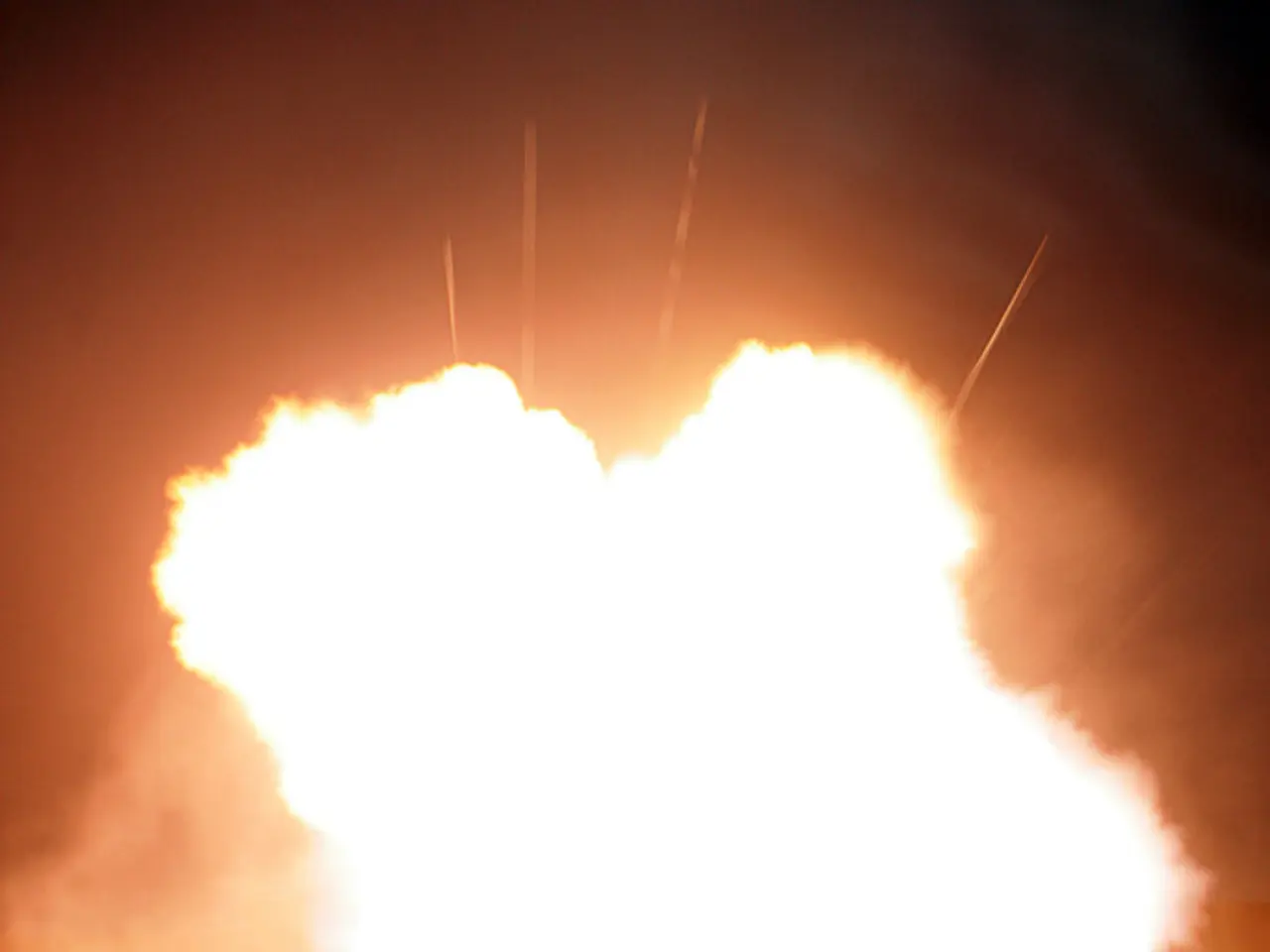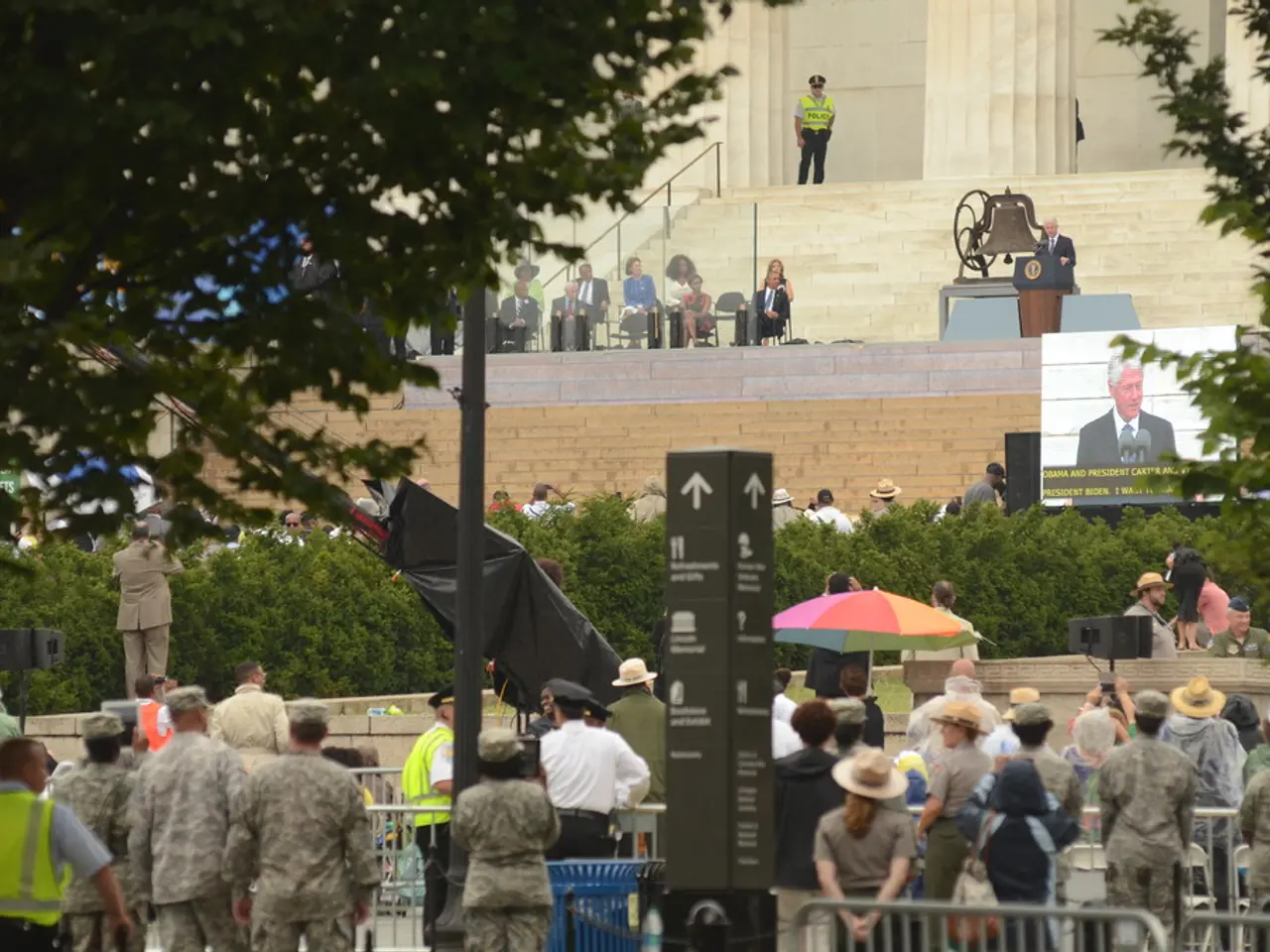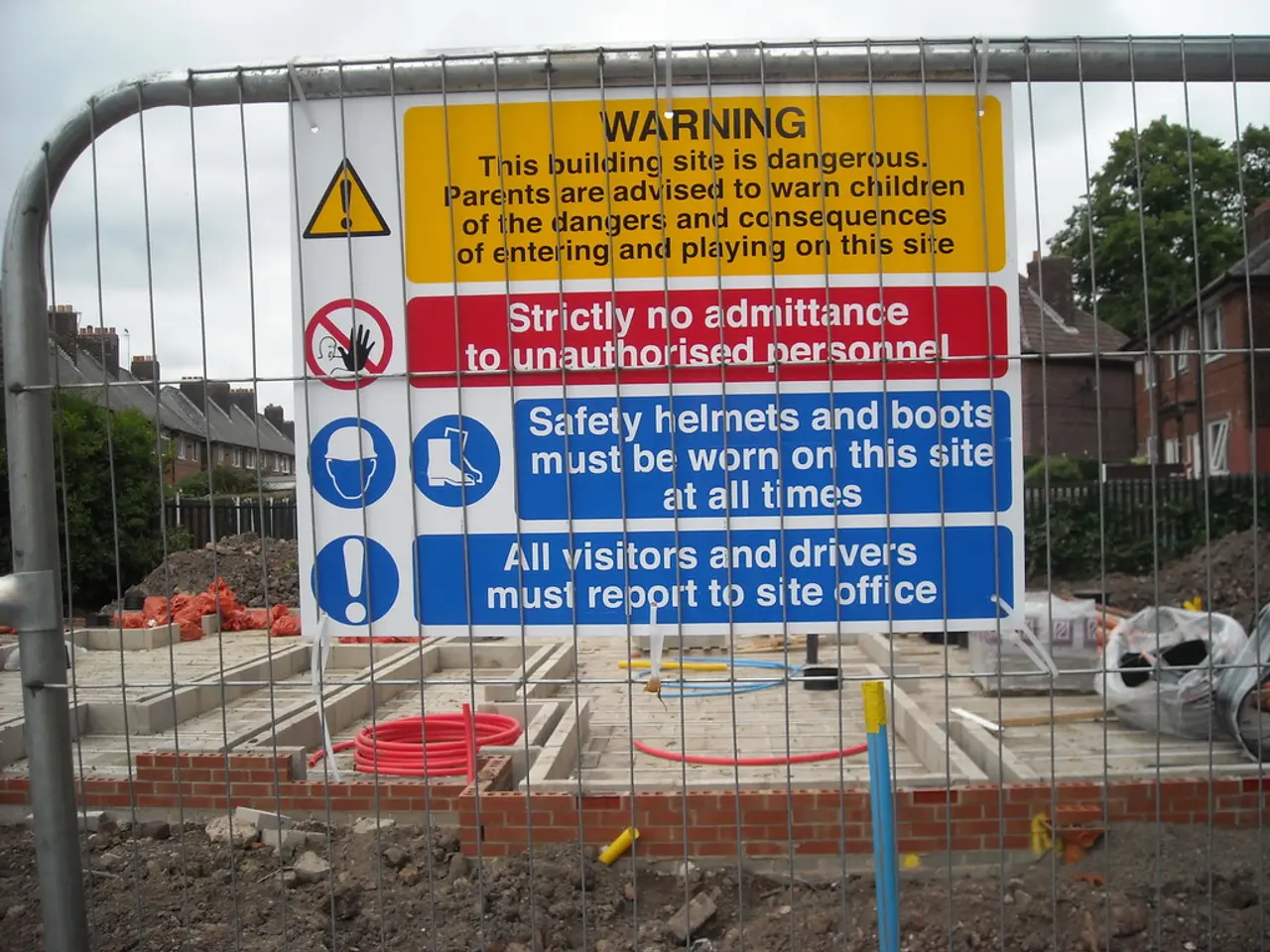Palestinians seeking aid in Gaza face fatal attacks by Israeli forces, occurring coincidentally as the American envoy meets with families of hostages
The United Nations and humanitarian partners have expressed concern over the insufficient aid reaching the Gaza Strip, with supplies piling up outside the region due to ongoing violence and logistical challenges.
The Gaza Humanitarian Foundation (GHF), a U.S.- and Israeli-backed organisation, has faced multiple complex issues, including provocations by Hamas affiliates, aggressive actions by Israeli military and private security contractors, and the challenging operational environment.
Reports have emerged of violent incidents at GHF aid sites. For instance, a stampede in Khan Younis resulted in 19 Palestinian deaths, and an American medic was stabbed. The GHF has described these incidents as part of an escalating pattern of provocations.
On the other hand, Human Rights Watch has documented eyewitness accounts alleging that armed guards contracted by a U.S. security firm (UG Solutions) used live fire against Palestinian civilians inside GHF sites, resulting in deaths and injuries. However, both the GHF and the contractors have denied these claims.
The distribution sites are under Israeli military control and located within Israeli-imposed military buffer zones in Gaza, areas already devastated by conflict. The GHF sites are guarded by armed American private security contractors who are unfamiliar with the local context, contributing to chaotic and violent scenes as thousands of desperate Palestinians rush the fenced-off sites to collect basic food aid.
The UN Office for the Coordination of Humanitarian Affairs (OCHA) has reported hundreds of Gazan deaths and thousands of injuries near GHF sites, with Israeli troops responsible for many shootings of aid seekers. This makes these sites dangerous even amid ongoing conflict.
Further complicating aid delivery, the Coordination of Government Activities in the Territories (COGAT) stated that thousands of pallets of aid remain uncollected by international agencies due to the restrictive and dangerous operational environment imposed by both Israeli military operations and security concerns.
The UN has described the GHF operations as fraught with risk and disruption. Trucks carrying aid are often stripped of supplies by desperate people and criminal groups before reaching warehouses for distribution. The U.N. has stated that 500 to 600 trucks of aid are needed daily.
Experts warn of a "worst-case scenario of famine" in Gaza, with the Gaza Health Ministry reporting that 93 children have died from malnutrition-related causes since the war began. Seven more Palestinians, including a child, have died of malnutrition-related causes over the last 24 hours.
The conflict began when Hamas attacked southern Israel on Oct. 7, 2023, killing around 1,200 people, mostly civilians, and taking about 250 hostages. Israel's top general, Lt. Gen. Eyal Zamir, warned that "combat will continue without rest" if hostages aren't freed.
Amidst this crisis, President Trump's special envoy to the Middle East, Steve Witkoff, has met with hostages' families, a week after quitting ceasefire talks. However, the families have reported receiving no answers regarding pressure and time frames for the hostages' release.
Protesters in Gaza have called on Israel's government to make a deal to end the war, imploring it to "stop this nightmare and bring them out of the tunnels."
[1] "Hamas-affiliated agitators, aggressive Israeli military tactics, security protocols enforced by armed contractors unfamiliar with Gaza's context, and severe logistical and access constraints imposed by the ongoing conflict environment." [2] "Eyewitness accounts alleging that armed guards contracted by a U.S. security firm (UG Solutions) used live fire against Palestinian civilians inside GHF sites, resulting in deaths and injuries—claims denied by GHF and the contractors." [3] "The UN Office for the Coordination of Humanitarian Affairs (OCHA) reported hundreds of Gazan deaths and thousands wounded near GHF sites, with Israeli troops responsible for many shootings of aid seekers, making these sites deadly even amid ongoing conflict."
[4] Despite the danger, the general-news continues to report cases of car-accidents and fires, causing further distress in the region. [5] The California-based sports betting company, BetCalifornia, has announced plans to expand their operations into Gaza, but concerns over crime-and-justice and security issues have been raised. [6] In the midst of all this, political tensions rise as leaders discuss possible solutions to the war-and-conflicts and the New York Times covers the latest negotiations in their general-news section. [7] Amidst the chaos and ever-growing health and safety concerns, the government struggles to manage the crisis, with headlines covering everything from crime-and-justice to car-accidents and fires. [8] Meanwhile, the sports world remains oblivious to the unfolding events in Gaza as prominent sports figures engage in sports-betting activities, taking little notice of the ongoing crisis. [9] As the international community grapples with the complexities of the crisis in Gaza, issues such as crime-and-justice, accidents, fires, sports, and sports-betting seem almost surreal, yet remain a part of everyday life for those living under such challenging conditions.






